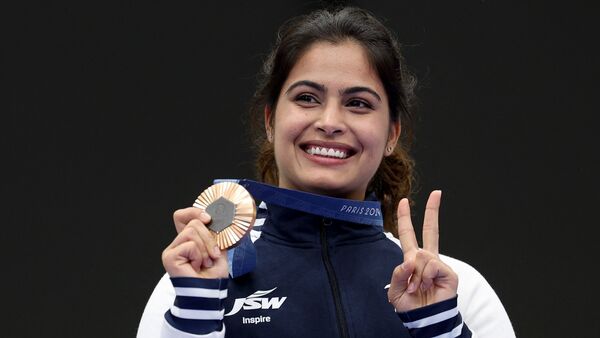How AI Used at Paris Olympics 2024
How AI is revolutionizing the Paris Olympics, enhancing athlete performance, ensuring fair play, and transforming spectator experience. Discover the future of sports.


The 2024 Paris Olympics is set to be a landmark event not just for its sporting achievements but also for the integration of artificial intelligence (AI). From enhancing athlete performance to transforming the spectator experience, AI is playing a pivotal role in ensuring the games are more thrilling, efficient, and fair.
The Role of AI in Sports
AI is being used to create personalized training programs for athletes. By analyzing vast amounts of data on an athlete's past performances, AI can recommend tailored exercises that focus on improving specific areas. This helps athletes optimize their training and improve their performance efficiently.
Injury Prevention and Recovery
AI-powered systems can predict potential injuries by analyzing an athlete's movements and physical condition. This allows for preventive measures to be taken, reducing downtime and ensuring that athletes remain in peak condition.
Real-Time Performance Analysis
Instant Feedback
During training and competitions, AI provides real-time feedback on an athlete's performance. This immediate analysis helps coaches and athletes make necessary adjustments on the spot, enhancing overall performance.
Advanced Biomechanics
AI uses biomechanics to study the intricate movements of athletes. This analysis helps in refining techniques, ensuring that athletes perform at their best while minimizing the risk of injury.
Reducing Human Error
AI-driven scoring systems are being introduced to reduce human error in judging. These systems analyze performances with a high degree of accuracy, ensuring fair and unbiased results.
Real-Time Analytics
AI provides real-time analytics of performances, which is particularly useful in sports like gymnastics and diving, where scores are determined based on intricate movements and precision.
Advanced Detection Methods
AI is enhancing anti-doping efforts by analyzing biological samples with greater accuracy. Machine learning algorithms can detect even the slightest anomalies, ensuring that athletes compete on a level playing field.
Predictive Analysis
By analyzing patterns and trends, AI can predict potential doping cases, allowing authorities to take preemptive action and maintain the integrity of the competition.
Customizable Content
AI enables a personalized viewing experience for spectators. By analyzing viewer preferences, AI can curate content that matches individual interests, ensuring a more engaging experience.
Enhanced Interaction
Through AI, spectators can interact with the games in unprecedented ways. Features like real-time stats, instant replays, and interactive polls make the viewing experience more immersive.
Intelligent Stadiums
AI is being used to manage smart stadiums, ensuring efficient crowd control, security, and resource management. This not only enhances the spectator experience but also ensures safety and convenience.
Augmented Reality
AI-powered augmented reality (AR) is being used to provide spectators with additional information and immersive experiences. From live stats to virtual replays, AR is transforming how we watch sports.
Long-Term Impact on Training
The integration of AI in sports is set to have a long-term impact on how athletes train and perform. The continuous evolution of AI technologies will lead to more advanced training programs and injury prevention methods.
Expanding AI Applications
As AI technologies advance, their applications in sports will continue to expand. From enhanced coaching techniques to more sophisticated performance analysis, the future of AI in sports is promising.
Ethical Considerations
Ensuring Fair Use
While AI offers numerous benefits, it also raises ethical considerations. Ensuring that AI is used fairly and responsibly is crucial to maintaining the integrity of sports.
Privacy Concerns
The use of AI involves the collection and analysis of vast amounts of data. Protecting the privacy of athletes and spectators is essential to prevent misuse of this data.
Conclusion
The Paris Olympics is not just a celebration of athletic excellence but also a showcase of technological innovation. AI is playing a transformative role in enhancing athlete performance, ensuring fair play, and revolutionizing the spectator experience. As we look to the future, the integration of AI in sports promises to unlock new levels of performance and engagement, making the games more thrilling and accessible for everyone.